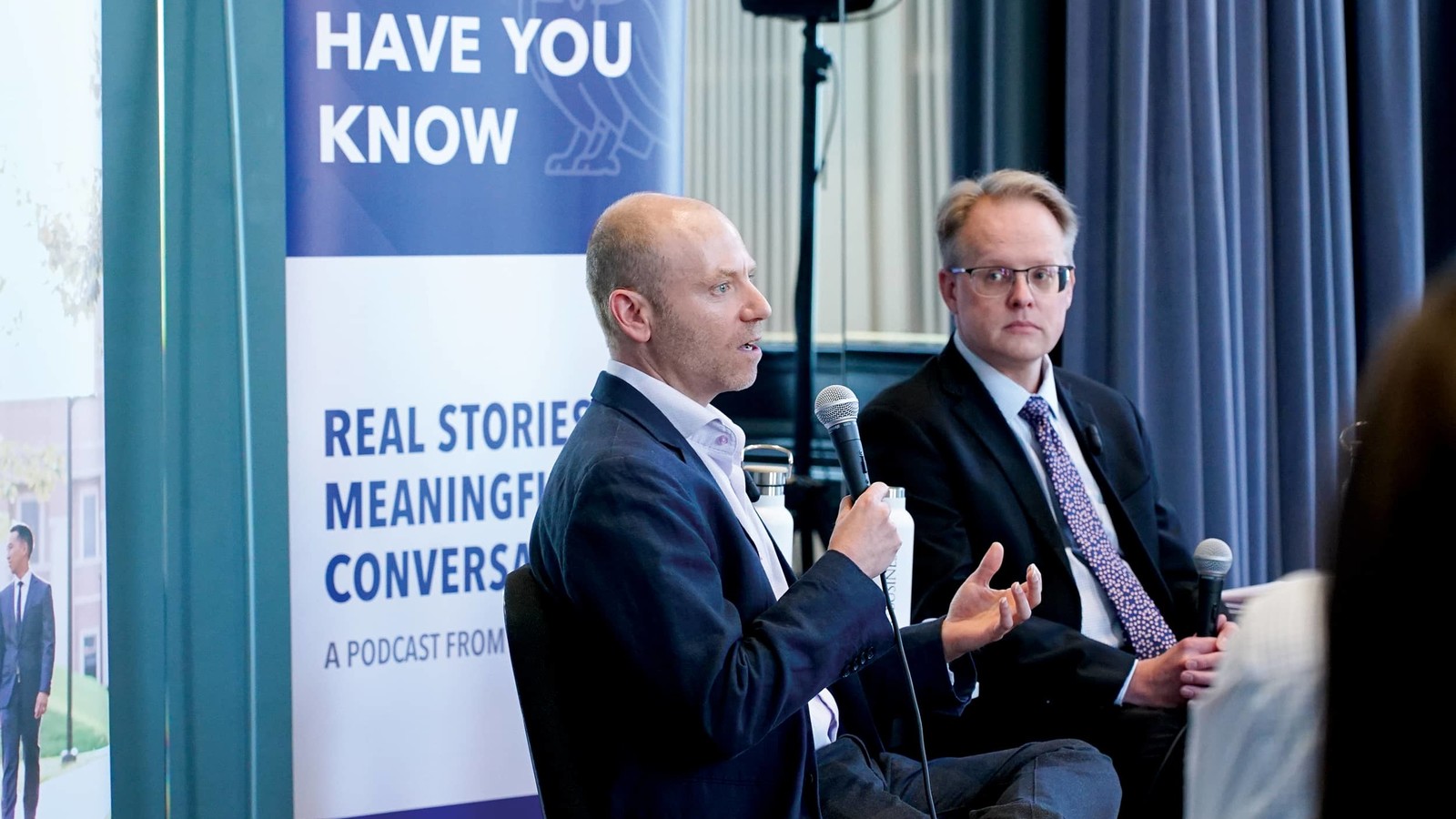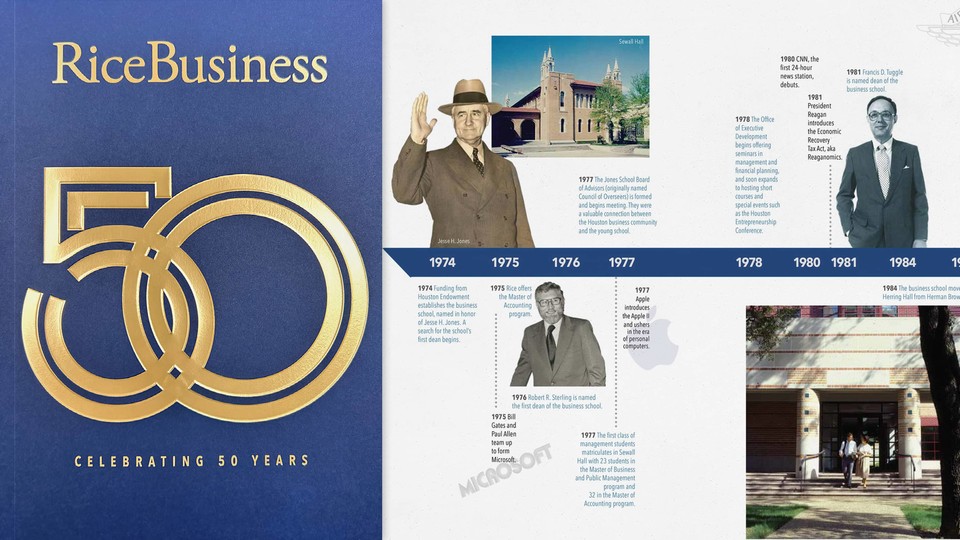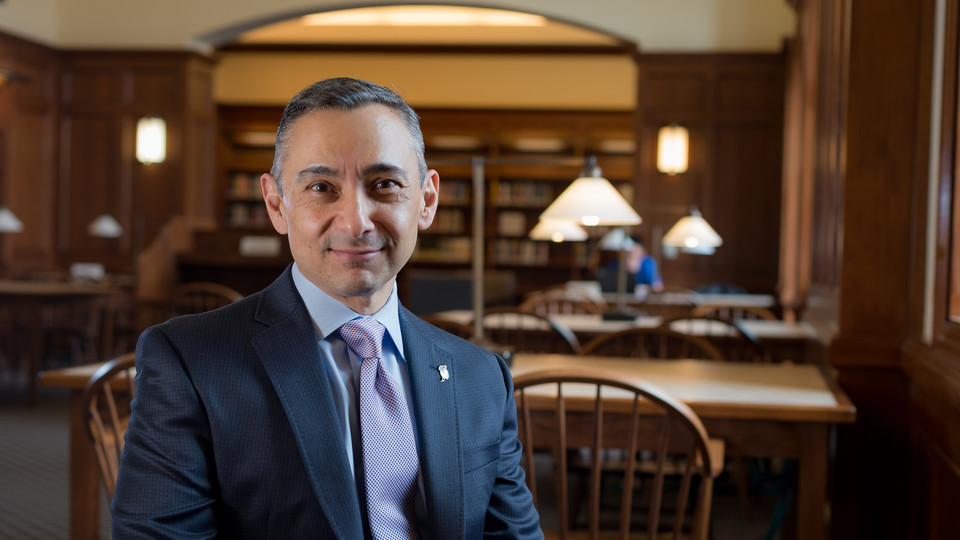Meeting of the Minds

And the Show Went On
It was March 2020 — when COVID-19 was making headlines — that the music at the Houston Symphony stopped. But that silence only lasted a short while as musicians, staff and leadership came together to innovate through the crisis, build their audience and create new performances. As they navigated the pandemic, Scott Sonenshein worked with Rice Research Analyst Kristen Nault to launch a multi-year study of two symphonies, one being Houston’s, and the ways they managed the crisis.
Here, Sonenshein talks with John Mangum, the CEO and Margaret Alkek Williams Chair of the Houston Symphony, about resilience, innovation and leadership through crisis, and the ways in which resourcefulness isn’t just a tactic for survival, but a strategic framework for stronger organizations — crisis or no crisis.
Scott Sonenshein: As I began my research, I was looking for a performing arts organization to study through the pandemic because, at that time, the industry — which depends on congregating for practices and performances — had a 65% unemployment rate. Broadway was closed — in fact, most performing arts organizations were at a complete standstill. It turned out that one of the few organizations that was still playing happened to be in my hometown in Houston.
John Mangum: We did initially shut down. As the pandemic progressed, we realized that we weren't going to have ticket revenue coming into the organization for some time. We started talking with our musicians about how we could continue our work in this new environment. We rallied around two clear points to organize our thinking. One, this is a group of incredibly skilled, incredibly gifted musicians, and they thrive on performing. Two, what we do has value. SS: I was studying a second symphony organization at the same time that took a different approach and stopped performances. What we saw in the Houston Symphony Orchestra was an organization that was relentless in its determination to keep playing. We saw a lot of innovation and creativity in finding ways — not to just put online what they were doing before — but to reinvent what they were doing so it would be suitable for the world they were operating in.
JM: Yes, we started to formulate an idea of inviting our audience into the living rooms of our musicians. We would send a camera and a microphone out to the homes of musicians, and every Friday they had carte blanche — they could play whatever they wanted, and they could talk about their work. We were giving audiences a completely different experience than they would get coming to Jones Hall to hear the symphony, and we charged a small fee for that specific performance.
SS: This approach also grew the audience because they were one of the few organizations thinking this way.
JM: The city let us get back in our hall for 4th of July weekend, and over the course of the summer, we could get the orchestra together in small groups sitting apart. Getting the orchestra back on stage and live streaming those performances was important at the time, but we also still have about a thousand households watching our live streams every weekend. So we developed this new stream of revenue that came out of the pandemic and has stuck with us as a wonderful audience development tool.
SS: Presumably you could have created these products before the pandemic, but it was only because of the constraints of the pandemic that you were forced to think differently. That's really the power of resourcefulness and why it becomes a strategic asset, not just a defensive strategy. It gives us permission to do things unconventionally — and those unconventional thoughts can take an organization beyond regular performance to exceptional performance.
JM: During the pandemic, we weren't under pressure to sell tickets — and that gave us the ability to program whatever we wanted. Another factor was the George Floyd protests in the summer of 2020 that made us aware that historically we had not been representing Hispanic or Black women on our stage with our programming. We began to program this work in a really robust way. And that, too, is something that's continued. We developed new skills around collaboration and exploration that, again, absent the pandemic and the social justice conversations, we may never have discovered.
SS: Leadership played a big role here. We matched the two symphonies we studied in just about every other way except the fact that they were performing or not performing. They were similar in revenue, similar in political environments, similar in COVID restrictions. A trust developed in the Houston Symphony between staff and musicians and leadership. The opposite was true of the other symphony. There were certainly economic hardships, but we talked about how these performers have an innate desire to perform, and there was a lot of sadness in this other symphony that was unable to deliver that experience for their staff. What we saw in the other organization was threat rigidity — an approach you often see with leaders facing crisis. It’s the idea that an organization should close up and constrict resources at a time when you really need innovation and creativity. If you want to mobilize and help an organization adapt to adversity, you need to activate all of your staff, all of your employees. And that starts by having them trust you and recognize that you've got their interests in mind; that you've got a vision in terms of being able to weather the storm, but transparency in the fact that you might not have all the answers.



